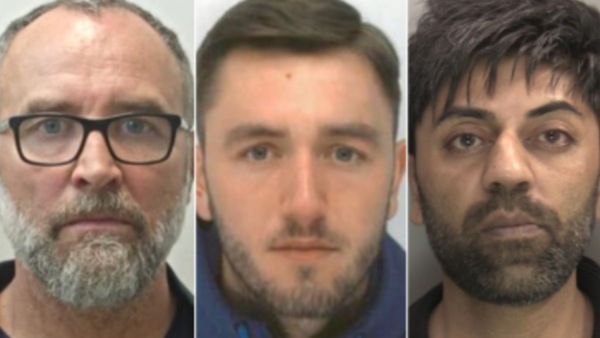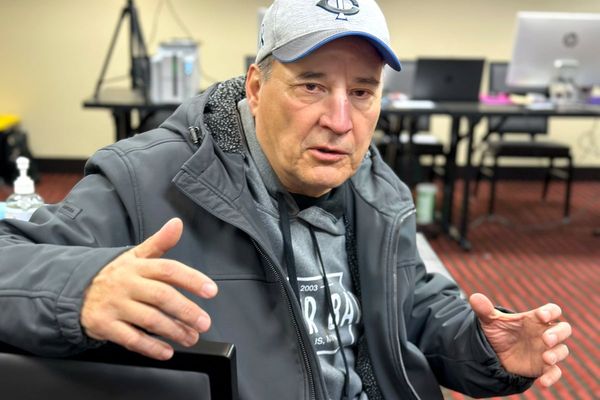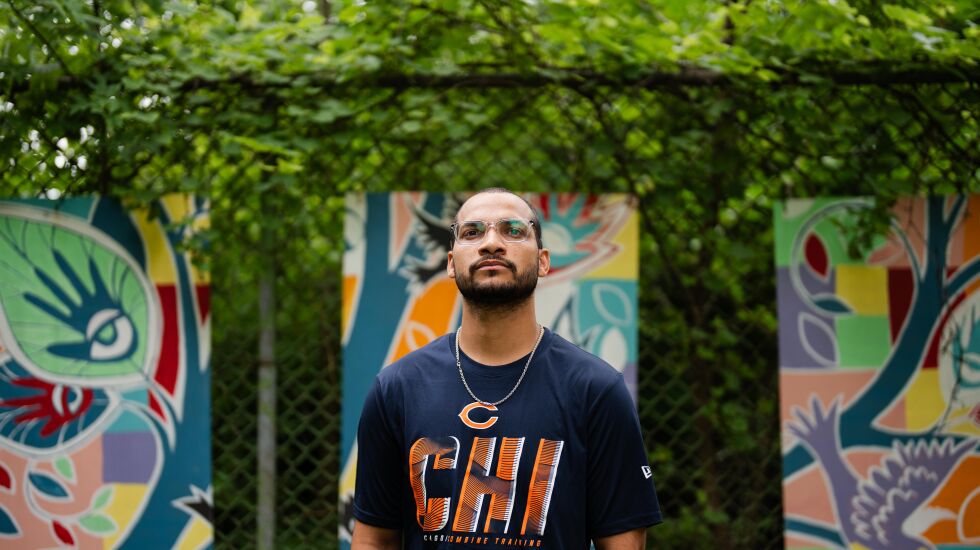
Luis Perez is once again facing an avalanche of about $40,000 in student loans after the Supreme Court rejected a program by President Joe Biden’s administration that would have reduced his debt by about $10,000.
Perez, 28, of Hermosa, owes $31,000 in federal student loans and $9,000 more in private loans. In addition, his wife owes $11,000 in federal student loans. The couple believes some of their debt would have been reduced as part of the student loan forgiveness program.
“We’re left in limbo now,” Perez said. “Basically, we were given false hopes, and now that it’s stricken down, it just makes it a little harder to see what’s going to happen in the future.”
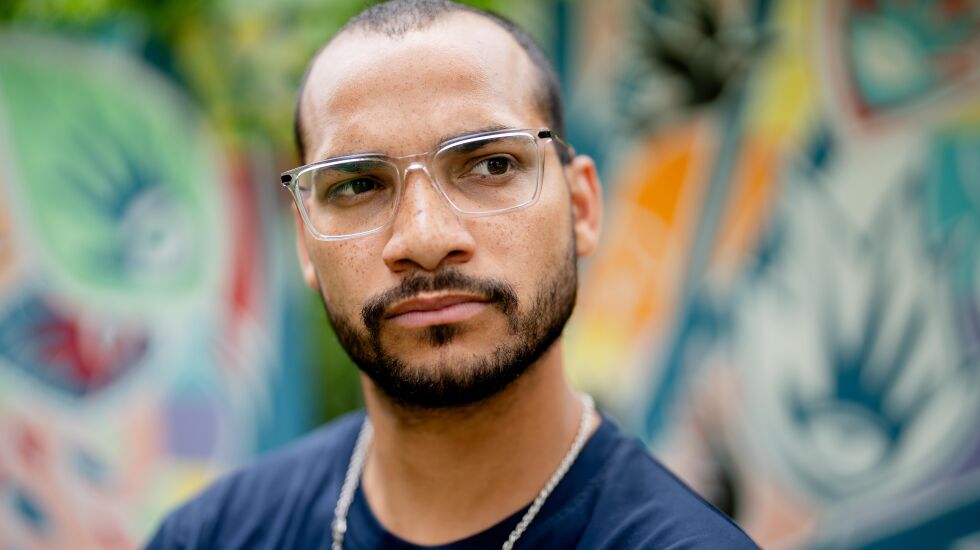
In a ruling issued Friday morning, the U.S. Supreme Court rejected the program that would have cleared $400 billion in college student loans. More than 1.5 million people in Illinois out of an estimated 26 million people across the country with student debt applied for the federal program. An estimated 43 million people nationwide would have been eligible for the program. And residents across the state, like Perez, had applied for relief in droves.
Three congressional districts with the highest response rates for the program across the country were in Illinois, according to data released this spring from the U.S. Education Department. More than 70% of eligible borrowers in the 5th, 6th and 8th Congressional Districts in the Chicago area had applied for or automatically qualified for debt relief.
“A lot of people, because this got struck down, they’re going to start feeling hopeless. Like people can already not pay their bills as it is,” said Ami Schneider of Schaumburg, who was saddled with student debt from a for-profit school and is now an organizer for the advocacy group, the Debt Collective.
“When I was first graduated from college and had bill collectors calling me constantly, I remember how hopeless I felt, how desperate I felt,” she said.
The Illinois Federation of Teachers, one of the state’s major teachers unions, said it intended to work with the state Legislature to try to revamp higher education funding in Illinois to ensure “students have access to an affordable, equitable education.”
“Today’s ruling is another example of how Trump’s SCOTUS justices continue to discriminate against people of color and lower-income Americans while prioritizing the wealthy and corporate interests,” federation President Dan Montgomery said in a statement.
U.S. Rep. Jan Schakowsky, whose district includes part of Chicago’s North Side and north and northwestern suburbs, also urged the U.S. Education Department to help.
“While this decision is unjust and incorrect, it does not mean the end of student loan forgiveness,” Schakowsky said in a statement. “The Higher Education Act provides the secretary of education with a broad toolbox that can be used to deliver relief to millions of student loan borrowers, despite the Supreme Court’s decision, but we must work to ensure that these tools are utilized.”
Perez said he expects he and his wife will have to pay about $450 each month once student loan payments resume. That will mean their goal of purchasing a home will get a bit harder as they rearrange their budget.
“It’s just going to be even tighter,” Perez said of his household budget. “I mean, with all the inflation and everything, everything’s already become harder. Just fresh out of college, we’re not making six figures or anything.”
Shabbir Rizvi, 28, of Ukrainian Village, is once again on the hook for $24,000 in student loans. He expected $10,000 to be cleared if the student loan forgiveness program had been upheld.
On Friday morning, Rizvi was already thinking of ways he might have to reduce his costs. That could include getting a smaller, more affordable apartment, or cutting back on the occasional dinners with friends. He expects he will have to pay anywhere from $350 to $500 a month once student loan payments resume.
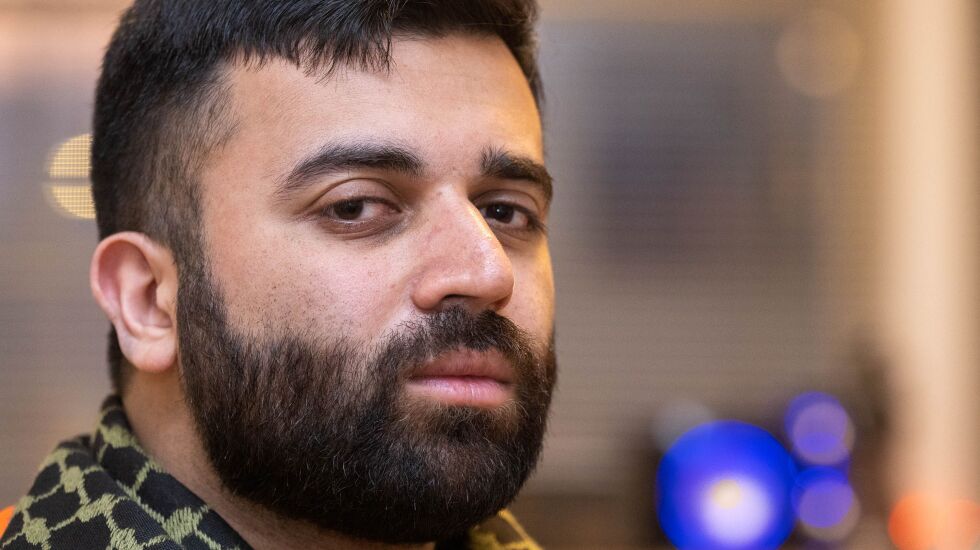
“Whenever we need money for war, a blank check is always available,” Rizvi said, who works two jobs. “But whenever the public is screaming for any sort of relief — even a sliver of relief — then they have to go through an immense amount of hurdles only for it, at the end, to be called unconstitutional.”
Perez and Rizvi separately expressed frustration with the Biden administration.
Rizvi, who graduated with a political science degree from Northern Illinois University, said he was disappointed with how the program was handled, adding that Biden could have possibly gotten support when Democrats were in power in both houses of Congress.
Perez, who works as an athletic trainer, said Biden should keep his promise to enact some kind of reform of student loans even if that means making changes to how much college costs for future generations.
Biden said his administration had already begun the process of working under the authority of the Higher Education Act of 1965, which he called “the best path that remains to provide as many borrowers as possible with debt relief.”
Perez originally accrued about $50,000 in student loan debt after taking courses at DuPage Community College and graduating from Northern Illinois University with a degree in athletic training.
The cost of higher education is one of the reasons he hasn’t pursed additional degrees.
“If it made something more affordable and it was in our ability to go back to school, maybe,” Perez said. “But again, just the way it looks right now, it’s kind of like, is it really worth it?”
The Associated Press contributed. Elvia Malagón’s reporting on social justice and income inequality is made possible by a grant from The Chicago Community Trust.

